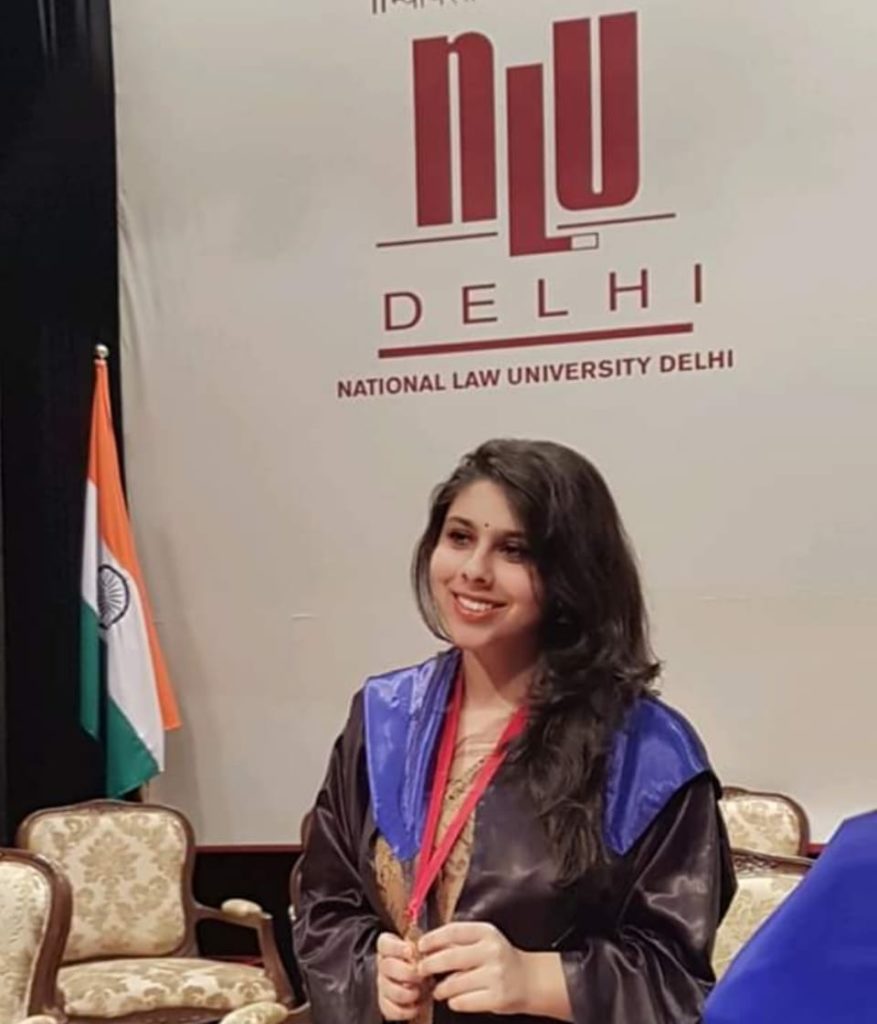To express oneself in utmost lucid way is an art Mehak Bajpai is gifted with, who is a Associate Editor at Journal on International Human Rights and Practices, columnist at Indian Express and a NLU Delhi alumnus with specialisation in Criminal Law and Constitutional Law. Currently working as a research associate in NLUD on a research project on sexual harassment law(Impact and Assessment with National Human Rights Commission, she has that savoir faire in her.
Q.So first tell me something about your alma mater. Also, most of the law aspirants find it difficult to crack AILET than CLAT. What should their strategy be in this regard?
A. I have done my schooling from St. Joseph’s convent. Bhopal. Thereafter I joined IP University’s University School of Law and Legal Studies in Delhi for B.A LL.B. Cracking AILET for my PG was the best thing that ever happened to me. Over the years I have come to an understanding that atleast on a PG level, a very good understanding of jurisprudence is necessary, as far as AILET for PG is concerned. One should read as many international authors as possible in this regard. As for aspirants aiming for AILET under grad, the best advice I can give is to probably take a little break after your 12th exams and prepare for AILET for a year, atleast. Of course this is a little subjective. Students have also cracked AILET with just a few months of preparation.
Q.Well I went through your Linkedin profile, you have presented papers pertaining to feminist issues. How do you think does Law act as a medium to redress issues like dowry deaths and marital rapes in underprivileged societies?
A.The issue is that we have lots of laws but very little implementation and that is due to this disconnect that law has with the society. We have, in our project with NHRC, talked to various stakeholders in women-related laws such as sexual harassment at workplace and come to a finding that most of them (the victims, the accused and the authorities) are often unaware of these laws being in place. Therefore, for law to be really effective, the grassroot realities have to be understood. To bring about a change in the condition of women in our society, we need to hear them before making laws about them. Stress must be more on attitudinal change than the law.
This is precisely the reason why there are stringent laws in place against rape but rapes don’t stop. This is the reason why people have an issue with criminalizing marital rape because we haven’t educated them about consent.
Q. You have been a columnist at the Indian Express. Do you think the power of print media to get to grips with citizen grievances and exercising the right to free speech and expression before a large audience has been overcome by the advent of social media?
A. I definitely think social media has taken over the print media because the former gives more freedom to people to express. Moreover, people who don’t really read newspapers are often found commenting on the reports of these print media pages on social media, expressing their views. Print media has it’s own value, of course. But social media has made print media to reach to places where people are not necessarily voracious readers but like to discuss events reported by these media pages.
Q. You had previously co-authored a paper with Professor Hilgendrof in University of Wurzburg, Germany on development of mechanisms to introduce mediation in criminal matters. Can you tell me something more about the paper?
A. As for your second question, the paper was titled “Advancing of Restorative Justice in Criminal Law in India and Germany: A comparative study” . This has also been published by SAGE last year.This article seeks to put some light on two systems, that is, India’s accusatorial system and Germany’s inquisitorial system of trial, and how both the countries have gradually come up with alternative dispute resolution techniques, with the primary focus being the victim–offender mediation programmes (VOMPs) and plea bargaining.

